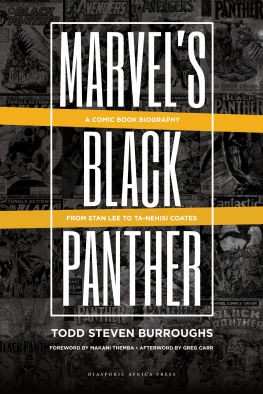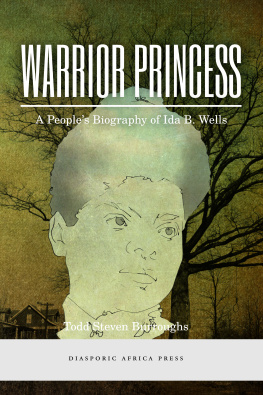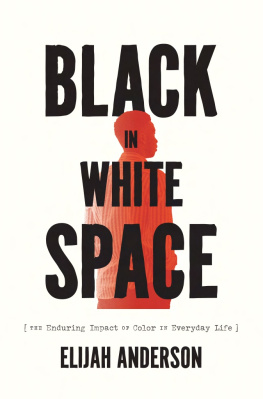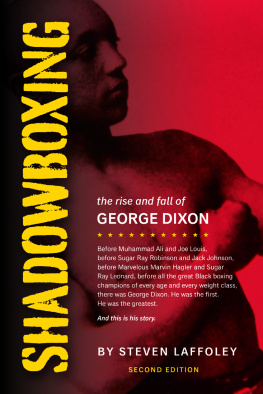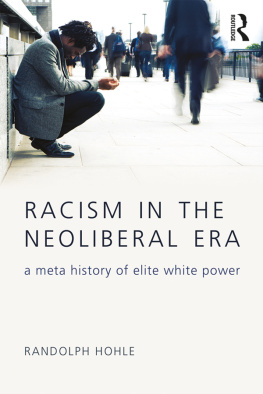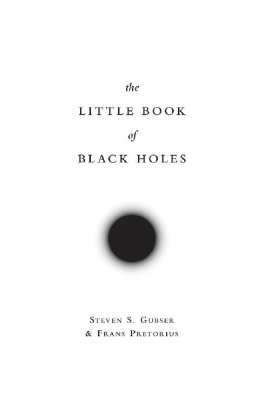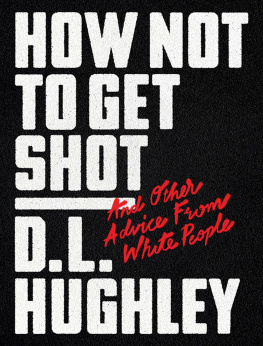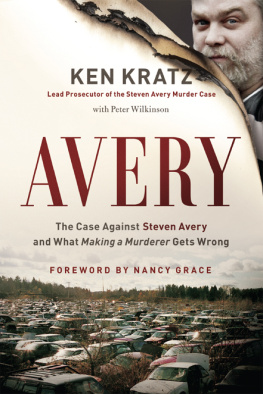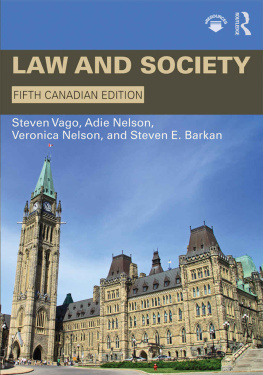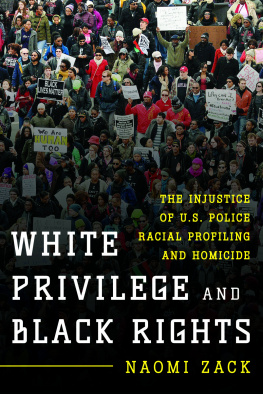Thank you for buying this ebook, published by NYU Press.
Sign up for our e-newsletters to receive information about forthcoming books, special discounts, and more!
Sign Up!
About NYU Press
A publisher of original scholarship since its founding in 1916, New York University Press Produces more than 100 new books each year, with a backlist of 3,000 titles in print. Working across the humanities and social sciences, NYU Press has award-winning lists in sociology, law, cultural and American studies, religion, American history, anthropology, politics, criminology, media and communication, literary studies, and psychology.
Black Police, White Society
BLACK POLICE, WHITE SOCIETY
STEPHEN LEINEN
Copyright 1984 by New York University
All rights reserved
Manufactured in the United States of America
Library of Congress Cataloging in Publication Data
Leinen, Stephen H.
Black police, white society.
Includes bibliographical references and index.
1. Afro-American policeNew York (N.Y.) 2. Race
discriminationNew York (N.Y.) 3. Discrimination in
employmentNew York (N.Y.) 4. Public relations
New York (N.Y.)Police. I. Title.
HV8148.N5L37 1984 363.220899607307471 83-23622
ISBN 0-8147-5008-7 (alk. paper)
Book designed by Laiying Chong
Clothbound editions of New York University Press Book are Smyth-sewn
and printed on permanent and acid-free paper.
To my father, in memoriam
CONTENTS
ACKNOWLEDGMENTS
I wish to express my appreciation and deep sense of gratitude to those friends and colleagues at Queens College who patiently read and provided assistance and input into this book: Professors Paul Blumberg, Dean Savage, Steve Cohen, Lauren Seiler and Mike Brown. I owe a special debt of gratitude to Professor Bernard Cohen, a long-time friend and colleague at Queens College, who constantly offered constructive criticism and encouragement to complete the book; to Jenny Hunt, who took time away from her doctoral dissertation to carefully read and comment on each page of the manuscript; to Pat Jenkins, who, while not a formal student of the social sciences, nevertheless provided insight into many of the comments quoted in the book; to Joe Ford, who answered many of the theoretical questions I had concerning the working world of the black professional.
Special thanks are due to Rae Simmons, secretary in the sociology department at Queens College, who enthusiastically volunteered her expert typing skills and who never once complained when sections of the manuscript, thought to have been completed, had to be retyped.
Finally, I owe a special debt of gratitude to all the black police officers who participated in the study and especially to Al De-Costa, Clyde Isley and Evrod Williams who spent many hours of their own time answering the many questions I had and helping me gain a better understanding of what it means to be a black policeman in a changing society.
INTRODUCTION
Black Police, White Society is a book about the working world of the black police officer. The idea for the book, as well as the research for it, came from my own experience as a member of the New York City police department (NYPD). In the mid-1960s I worked in the NYPD as a uniformed police officer, then as a detective in plainclothes for approximately nine years, and currently as a patrol supervisor in predominantly black areas of New York City. During this time I have met and worked with a large number of black patrolmen and black detectives, and as a result of the many friendships that developed with these officers I found myself becoming increasingly sensitized to and interested in the occupational world of the black officer.
An academic background in sociology provided me with the added curiosity and tools to pursue the various lines of inquiry which finally ended up as this book. There was something else too, however, and that was the conspicuous absence of anything written on black police. Aside from a few articles in professional journals, government reports (which dated back to the 1960s), and scattered newspaper accounts, black police as an occupational group simply had not received much attention. The one substantial exception was Nicholas Alexs Black in Blue, a book which described the problems facing black New York City police officers in the early 1960s. Yet even this penetrating analysis of the black officers working world has proved to be incomplete; since then important developments have taken place in the struggle of black Americans to secure a more equitable place in society and especially in the efforts of black police in New York City and elsewhere to achieve greater acceptance and equality within their departments. In short, the rapid pace of social change in this country since the mid-1960s has required both an update and clarification of much of the data contained in earlier studies and reports. It was for these reasons that I undertook the task of gathering data and reporting on black police. I can only hope that the material in this book serves the purpose in which it was collectedto present both an objective and inside view of the impact of changing political, legal, and organizational structures on the position, role, and identity of black police officers in New York City, and by extrapolation in all of urban America.
My approach to this study involved rounds of intensive interviewing over considerable periods of time of 46 black New York City cops, although material was also collected from a variety of other sources including newspapers, magazines, journals, books, and periodicals. The bulk of the statistical data relating actual changes in the racial composition of the police department in New York City and its various divisions, subunits, and ranks was provided by the departments Office of Equal Employment Opportunity and by Roger Abel, an officer in the Guardians Association, a black police (fraternal/political) group.
My efforts to penetrate the working world of the black officer, while I was simultaneously serving as a member of the department, have presented special difficulties beyond the ones normally experienced by the native as researcher. From the onset of the project, for example, I found myself occupying a deviant status in the eyes of many friends and colleagues on the job. Why, most of them wanted to know, would a white cop want to study and write about such a potentially controversial subject as black police? From white colleagues (and immediate superiors) the subject matter evoked varying degrees of reactions: surprise, bewilderment, annoyance, and occasionally outright hostility. I can recall, for instance, a comment made by a white detective in my team while a number of us were having lunch together. He had just returned from a lengthy vacation and apparently heard that I was speaking to black cops about such matters as discrimination and working relationships and questioned my motives for conducting such an inquiry. Before I could respond to what appeared at the moment to be an innocuous question he added, What are you, a nigger lover or something? At the time this comment caught me completely off guard. As I would soon come to learn, however, the subject matter I had chosen to delve into sparked the resentment of more than just this one white policeman.



